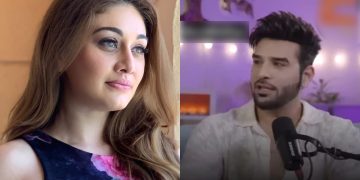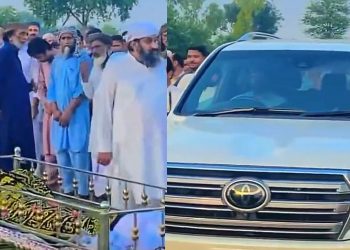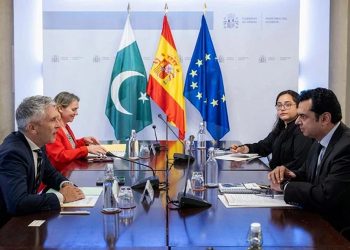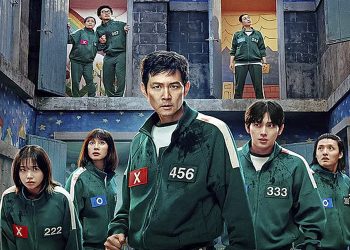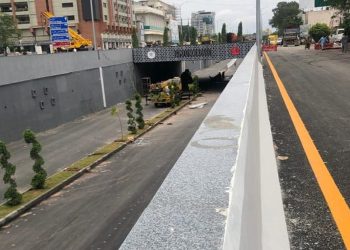At the end of the day, Jahangir Tareen and Abdul Aleem Khan’s meetings, discussions, and labour paid off. The brand-new political party was announced by Jahangir Tareen. The name is also good, and its components are intriguing. The stability of Pakistan party. It is referred to as IPP.
Remember that IPPs are private power plants that provide expensive electricity, and attempt to increase their revenue from the State by limiting production under a variety of pretexts. We can only hope that JKT’s party won’t do this and will instead merely resemble IPPs in abbreviation.
The press conference went well. Jahangir Tareen was accompanied by Aleem Khan, and Imran Ismail, Ali Zaidi, Amir Kayani, and others were also there. Tareen’s longtime colleague Ishaq Khakwani was also seated there smiling. After a few peaceful days, they grew weary, delayed their retirement, and rose up once more.
A fascinating tale involved Fawad Chowdhury. Although he wasn’t on stage, his name appeared on the TV channel’s tickers. When the camera finally rolled, Chaudhary Sahib had his face buried in his hands. Fawad was either feeling guilty or was being reserved because of someone. Fawad has a history of switching parties. People’s Party, Tehreek-e-Insaf, and the Musharraf League… He changed three parties in a short period of time. In contrast, he usually tries to take the club later. This time, he had the honour of being a founder member of a party.
The party’s positions were not disclosed by JKT, which will be a difficult problem given that this party already has far too many leaders. The search for workers and voters is still ongoing, though. See how they are doing.
Three questions sprang to mind as I was watching the news conference and later on when I was contemplating it.
Is this King’s party?
Consider the King’s Party as an example. Musharraf’s Q League, which was formed by fusing the PML-N and the PPP, controlled Pakistan for five years. In that regard, JKT’s party cannot be referred to as the King’s party because it is now facing stiff opposition from the PML-N, PPP, and JUI, which are the three establishment’s favorite parties.
Of course, it’s true that JKT’s party enjoys backing from the high and mighty and from influential circles. I’ve heard that some South Punjab electables will be pushed towards JKT. Murad Ras, a former colonel, and other PTI members who were in Lahore declared the creation of a democratic group. The JKT’s party already has Murad Ras on board. Dogar will adhere shortly. Things take place in this land of pure with a particular nod from up high.
The fact that JKT’s party has a lot of leaders but few actual political worthies raises an essential point. Ali Zaidi was elected to represent Karachi as an MNA, but his triumph was entirely owed to Tehreek-e-Insaf; otherwise, his circle would have claimed that Zaidi Sahib was incapable of serving as a councilman in his own community. The situation for Imran Ismail is far worse than Zaidy’s. He was given a significant role by Imran Khan, like governor. He is not a candidate who can win an election.
Previously, Aun Chowdhury served as a non-elected government advisor. He posed like an ADC during the press briefing. His brother Chowdhury Amin, who had run for MPA on behalf of PTI before defecting and running for PML-N and losing miserably, did so instead. Ishaq Khakwani, a Wahari member, has been defeated in the last three elections.
Aleem Khan was a Lahore-based MPA from Garhi Shahu. After being disqualified, he backed the PML-N candidate, who lost by a wide majority. Although Amir Kayani has been a member of Tehreek-e-Insaf for 27 years, it was Imran Khan who helped him win the election; he does not possess any unique political value. JKT is permanently disqualified from running for office. When the position opened up following his disqualification, his son ran, but despite his best efforts, he was unsuccessful. Ali Tareen was so discouraged as a result that he never again participated in politics.
Although Fawad Chowdhury’s position is marginally improved, PTI votes played a significant role in his victory. There are a number of previous Assembly members on the list, most of whom were defeated by Tehreek-e-Insaf, including Noman Langriyal. Zaheer Alizai from Multan also joined, but Shah Mehmood Qureshi refused to give him the ticket. Devastated, he then declared his retirement from politics. He has since joined JKT’s group.
Will all of these party leaders succeed in winning seats for the party, or will “some special friends” accomplish it for them?
The second question is: What will the party’s platform and campaign slogan be?
The third question is why no KPK representative was present at the gathering. Why a province was this significant ignored? Is there any other plan? Parviz Khattak or anyone else will be launched separately or join JKT in next phase?
There are a few persons from Karachi who were included, but no one from Sindh. Balochistan was likewise non-existent. Not a single person has won among the major South Punjabi electables. You can take part in elections with candidates finished second or third, but can’t win seats.
The last question is, What would the Muslim League and the People’s Party do if JKT’s party gained traction? It goes without saying that neither of them would want someone else to eat their cake. Regarding Central Punjab and Northern Punjab, particularly Lahore, Gujranwala, Faisalabad, and Sahiwal Division, PML-N is sensitive. People’s Party has made its entire focus on the south of Punjab, and hopes to win a few seats and get share in the next government. PPP wouldn’t want someone else come and eat its ice cream.
JKT has formed a party, but he will need to put a lot of work into it if he wants it to succeed. However, we are only analysts who observe the show and may offer an analysis about it.






